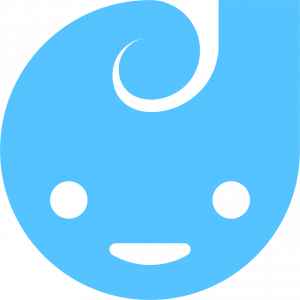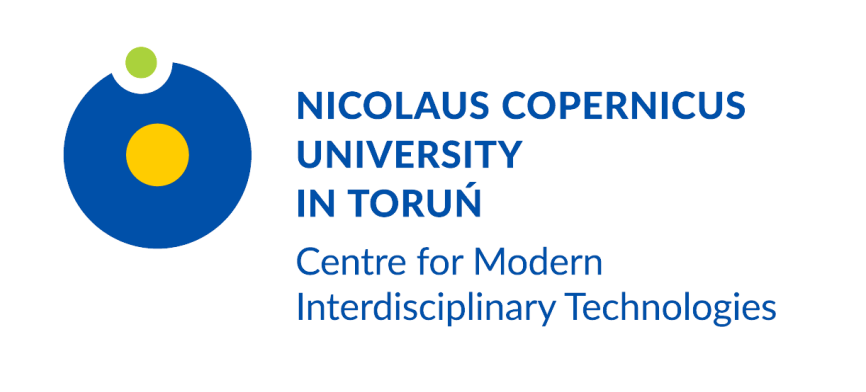Biomedical Signal Analysis Unit (BioSA)
Head: Tomasz Piotrowski
The Biomedical Signal Analysis Unit investigates and develops tools for analysis of biomedical signals. The current objectives are:
- to create a breathing model capturing the highly-nonlinear dependence of the observable breathing patterns on brain functions involved in generation of breathing rhythms. The proposed model will be used to forecast the state of patients after stroke, as well as to model the involuntary control of emotion-induced changes in breathing rhythms. The future research direction will be to combine signals from other modalities (such as pulse measurements and EEG) to build common dynamical model for analysis and control.
- to develop methods for source localization of brain electrical activity from EEG measurements using beamforming approaches which are robust against high background activity and correlation of sources by utilizing the multi-source approach to source localization. The proposed methods have higher spatial resolution in such challenging conditions than the existing solutions based on spatial filtering.
The methods developed along the above lines are applicable in the Neuropercog project, among others.
 Early Cognitive Development Unit (BabyLab)
Early Cognitive Development Unit (BabyLab)
Head: Joanna Dreszer-Drogorób
Current research of this Unit focus on infants and children:
- research within NeuroPerCog project,
- research on heating,
- research on working memory
Disorders of Consciousness and Neurorehabilitation Unit
Head: Tomasz Komendziński
Main goal of this Unit is to intensify advanced research aimed at diagnosis, therapy and rehabilitation of patients with disorders of consciousness (DoCs) and patients with severe neurological deficits. We would also like to provide integrated scientific and research support for diagnostic and rehabilitation processes as well as specific medical care.
Our initiatives are:
- six projects concerning diagnosis, neurorehabilitation and care of patients with DoCs, including WHODASS 2.0 assessment (head: G. Śmairowska), “Simple brain-computer interfaces in DoCs diagnostics” (head: D. Mikołajewski), “Integrated diagnostic system for patient with DoCs” (head: D. Mikołajewski), “Assisitive technology and orthopaedic equipment for patients with DoCs” (head: E. Mikołajewska), “Rehabilitation of patients with DoCs” (head: E. Mikołajewska), “Imaging of compression influence in proprioceptive effect to nervous system” (head: E. Mikołajewska),
- international InteRDoCTor research team http://www.interdoctor.umk.pl,
- NEURO family of projects (head: T. Komendziński),
- Postgraduate studies “Interdisciplinary neurorehabilitation”.
Our Unit cooperates closely with Foundation Light in Torun (President Janina Mirończuk) and Nursing Home named of Ks. Jerzy Popiełuszko in Torun (Director Grażyna Śmiarowska).
Neuroimaging Unit (NiLab)
Head: Monika Lewandowska
Current research of this Unit focus on:
- imagery agnosia,
- imagery amusia.
Biofeedback Unit (BiLab)
Head: Bibianna Bałaj
Current research of this Unit focus on:
- new biofeedback techniques: HRV etc.
- influence of tactile inputs on EEG spectrum,
- localization and synchronization of sources in neurofeedback.
Diagnostic and Therapeutic Games Unit (GameLab)
Head of unit: Jacek Matulewski
The aim of the group is to design and implement “games” helping in diagnose and therapy of for children (since birth till school years), as well as applications for adult, supporting various types of trainings and rehabilitations, which use the gamification to improve the users motivation. The present interests are mainly the so called “language games” for smallest children (since newborn till one year old) and “mathematical games” helping to diagnose the dyscalculia. In the latter field, the therapeutic application will be also developed.
PROJECTS: <-click for more projects
Neurocognitive approach to language
Head: prof. Włodzisław Duch
“NeuroPerKog: development of phonematic hearing and working memory in infants and children” got about 1 mln USD funding.
Breath analysis:
Head: prof. Oleksandr Sokolov
“The searching for methods of data analysis of observation of patients in the early stage of ischemic stroke for monitoring, diagnosis, and short-term forecasting of the state of patients taking into account the spirography signal”
Project is conducted under the Grant of Rector of Nicolaus Copernicus University No 506-F.
The research project is aimed to developing of multi-faceted evaluation of patients with stroke and analysis of respiratory rhythm in terms of therapeutic and prognostic. Another direction of researches is a validation of the standardized images database using breathing signals.
NeuroRest
In cooperation with World Hearing Center in Kajetany
Influence of training based on computer games to temporal processing information
Spatial memory in elderly people
Other projects pursued at the Department of Informatics:
- Meta-learning, or learning how to learn
- Prototype-based rulet and similarity-based learning
- Understanding neural networks and neurodynamics through visualization
Other CI projects: k-separability, projection pursuit networks, universal learning machines, almost random projection machines, transfer learning etc.
Neurocognitive Project:
- Monitoring and guiding development of infants
- Brains, consciousness, self, free will and artificial cognitive systems – W. Duch
- ASD and ADHD – W. Duch, K. Dobosz, G. Wójcik, D. Mikołajewski,
- Neurocognitive approach to language
- Semantic spaces and word games – W. Duch,
- A test-bed for integration of different Humanized Interface Technologies (HIT)
- Medical Information Retrieval – P. Matykiewicz, J. Pestian, W. Duch
- Brain stem model – W. Duch, D. Mikołajewski
- amusia,
- states of consciousness – W. Duch, D. Mikołajewski, T. Komendziński, E. Mikołajewska.
Computational Cognitive Science Projects:
- Associative memory models – W. Duch
- Categorization from neurodynamical and psychological perspectives – W. Duch
- Models of emotional states of mind – W. Duch
- Neural realization of psychological spacer – W. Duch
- Neurobiological computational theory of consciousness – W. Duch
- Platonic theory of mind – W. Duch
- Sensorimotor integration – W. Duch, MPPI group
- Transpersonal issues in cognitive science – W. Duch

 ul. Wileńska 4, 87-100 Toruń
ul. Wileńska 4, 87-100 Toruń